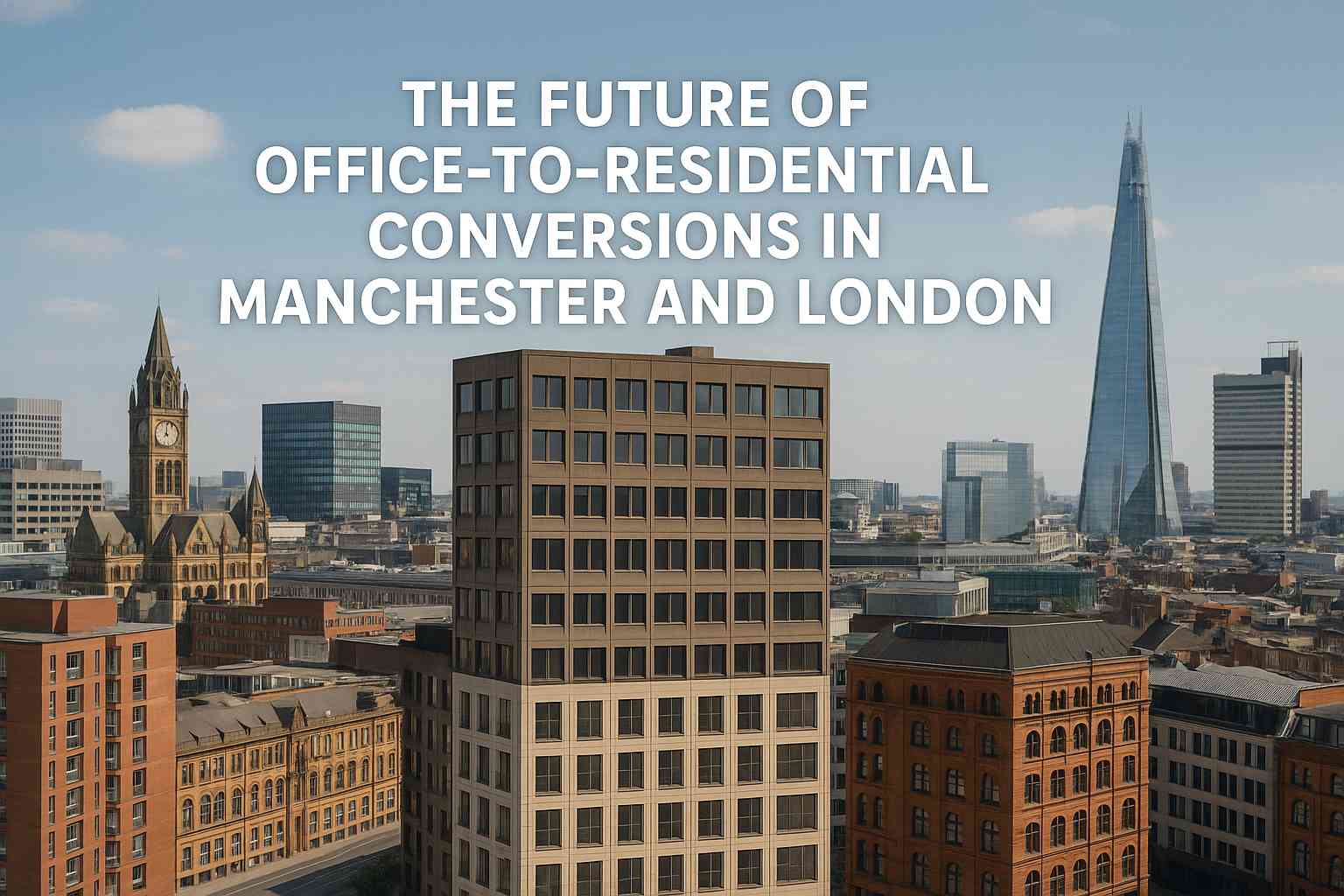Over the past decade, the way people use urban spaces has shifted dramatically. Once, office towers were the symbols of thriving financial districts, but changing work patterns, remote flexibility, and the impact of global events have left many office spaces underutilized. As a result, the trend of converting offices into residential properties has gained momentum across the UK. Both London and Manchester, two of the country’s most dynamic property markets, are at the forefront of this transition. These conversions not only breathe new life into dormant buildings but also offer a solution to housing shortages in major cities.
For renters and investors alike, lettings agents in Manchester are already seeing how this trend is reshaping the city’s housing stock. From disused office blocks in the city center to underutilized commercial sites in surrounding districts, these agents are fielding growing interest in properties that have been transformed into stylish apartments. With demand for quality housing consistently outstripping supply, office-to-residential conversions are being seen as both a practical and profitable response to urban change.
Why Conversions Make Sense
Converting office buildings into residential properties offers multiple benefits. First, it addresses the persistent housing crisis in both London and Manchester, where demand consistently outpaces availability. Second, it revitalizes city centers by ensuring buildings don’t stand vacant, which can otherwise contribute to urban decline. Finally, conversions can often be completed faster than entirely new developments, as they make use of existing structures and infrastructure.
Developers also recognize the financial opportunity. In cities where residential demand is high and office demand is stabilizing or shrinking, conversions offer a way to unlock value. This has been particularly true since the pandemic accelerated remote and hybrid work, reducing long-term office space requirements.
London: A Market Leader in Conversions
London has been leading the charge in office-to-residential conversions, particularly in areas with older office stock. Districts like Croydon, Docklands, and parts of East London have seen significant transformations as commercial buildings are repurposed into apartments. The capital’s property values remain some of the highest in the world, meaning that conversions often attract investors looking for both capital appreciation and strong rental demand.
That said, London’s regulatory environment and high costs can present challenges. Planning permissions, building regulations, and the need to meet strict residential standards can sometimes slow progress. Still, as demand for central housing remains intense, conversions in London continue to be a crucial part of the city’s property evolution.
Manchester: Following a Similar Path
Manchester is experiencing a parallel trend, but with its own unique opportunities. The city’s rapid growth, coupled with its booming student and professional population, has fueled demand for central living. Office-to-residential conversions offer a way to meet this demand while breathing new life into older commercial spaces.
Developments around areas like Piccadilly, Deansgate, and Salford Quays have already seen a wave of conversions, many of which are appealing to young professionals drawn to city-center living. The affordability of Manchester compared to London makes it an attractive market for developers, investors, and tenants alike. This balance of demand and relative affordability positions Manchester as one of the most exciting cities for future conversions.
Challenges to Consider
While the trend has strong momentum, challenges remain. Conversions must meet residential building standards, which often require significant alterations to ensure proper lighting, ventilation, and energy efficiency. Not all office buildings are suitable for conversion, and developers must carefully assess whether the cost of adaptation is feasible.
In London, competition for space and high acquisition costs can limit opportunities. In Manchester, while costs are lower, ensuring the right balance of affordable and luxury units is essential to sustaining demand across demographics.
The Role of Lettings and Property Management
As conversions increase, lettings agents and property managers play a pivotal role in ensuring their success. Converted properties often appeal to renters—students, young professionals, and even families—who want modern amenities in central locations. Lettings agents in Manchester are particularly instrumental in connecting these renters with suitable properties, while also advising investors on which areas and developments will attract the highest yields.
Their local expertise ensures that converted spaces are marketed effectively and achieve strong occupancy rates, helping investors maximize returns and giving tenants access to high-quality housing options.
The Future Outlook
Looking ahead, office-to-residential conversions are set to become a defining feature of both Manchester and London property markets. With work habits evolving, the demand for office space is unlikely to return to pre-pandemic levels. Instead, cities will increasingly need to balance commercial and residential requirements, and conversions provide a flexible solution.
London will remain a leader due to sheer scale and global demand, but Manchester’s growth trajectory suggests it will play an equally important role in shaping the UK’s urban housing future. Investors who recognize the parallels between the two cities stand to benefit from early involvement in projects that not only generate returns but also contribute to solving housing challenges.
Conclusion
The rise of office-to-residential conversions is a natural response to the changing dynamics of city life. By reimagining office spaces as homes, both London and Manchester are addressing housing shortages, revitalizing urban centers, and creating new opportunities for developers and investors.
As this trend continues, the guidance of experienced professionals—such as lettings agents in Manchester—will be vital. Their expertise helps investors identify profitable opportunities and ensures tenants find high-quality homes in the heart of two of the UK’s most important cities.








